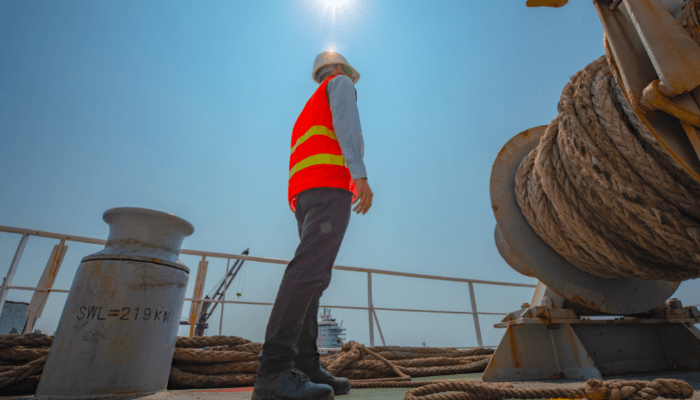Industry partners could still do more to ensure the safety of crews, says INTERCARGO, as it has submitted its latest Bulk Carrier Casualty Report to the Sub-Committee on IMO Instruments (III 8), convening at the end of the month.
Despite high levels of awareness from shipowners themselves of the dangers of improperly loaded cargo, the Report identified that liquefaction continues to be the greatest contributor to loss of life in the bulk sector. In the last ten years the lives of 70 seafarers were lost as a result of five bulk carrier casualties, four carrying nickel ore and one carrying bauxite.

During this period the Report identifies a total of 27 bulk carriers over 10,000 dwt as total losses, and 92 crew members lost their lives. Liquefaction accounted for 18.5% of the total vessel casualties in the past ten years yet was the cause of 76.1% of the total loss of life.
The Report highlighted that not only were IMSBC Code requirements not being followed, especially in relation to testing and certification of cargo condition, but that there was also lack of adequate assessment and monitoring of the condition of cargoes being loaded in the cargo holds by representatives of all interests.
Uttam Kumar Jaiswal, Vice-Chairman of INTERCARGO says: “Unusually, this report is not targeted at ship operators. They are well aware of the risks to their crews and their vessels caused by carrying cargos prone to liquefaction and make every effort they can to mitigate those risks.
“It is the lack of consolidated effort and commitment from many stakeholders to resolve the problem that is evident. These can include shippers, receivers and port state authorities at loading and discharging ports. We need action from those our industry relies upon for its safety – the IMO, legislators, and suppliers to ensure that that the minimum obligations under the IMSBC Code are properly fulfilled. The industry is simply talking to itself, if we cannot force action from our other stakeholder groups.
“INTERCARGO urges all shipowners, operators, and seafarers to exercise extreme caution when accepting, for carriage, nickel ore, bauxite, iron ore fines, ball clay and other cargoes that have the potential to liquefy. They need to be especially cautious when loading during a wet season as is currently being experienced in certain parts of South-East Asia and West Africa. We would like to stress the importance of adhering to the provisions in the International Maritime Solid Bulk Cargoes Code (IMSBC Code) to ensure the safety of lives at sea and the safe transportation of dry bulk cargoes.”
The Report highlights grounding as the most common reported cause of bulk carrier losses from 2012 to 2021, with 13 casualties, representing 48.1% of total losses. The investigation reports available highlight that human error both operationally and in navigation contributed to the majority of the 13 casualties.
Accident reporting also comes under the spotlight. It is well known that lessons from incidents and casualties and sharing of experience are effective approaches to raise safety awareness and vital to deepen understanding and knowledge of existing rules, regulations and skills. All too frequently however, there is a significant delay between the time at which a report, or an initial report is submitted by an accident investigating organisation and when that information becomes publicly available.
There is some good news. Statistics of ship losses and consequential seafarer fatalities suggest that safety performance of the bulk carrier industry is heading in the right direction, with a clear trend of improvement. However, there is no room for complacency and there are still opportunities for further improvement by re-evaluating and implementing enhanced measures to address cargo safety and safe navigation, thereby striving to eliminate losses in the future.
The INTERCARGO Bulk Carrier Casualty Report can be accessed free of charge from the Association’s
website.
Reference: INTERCARGO